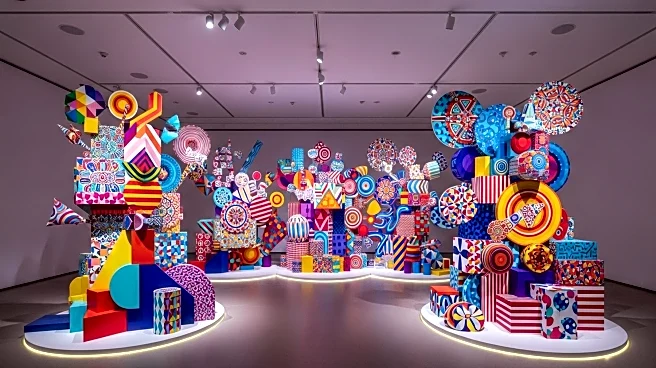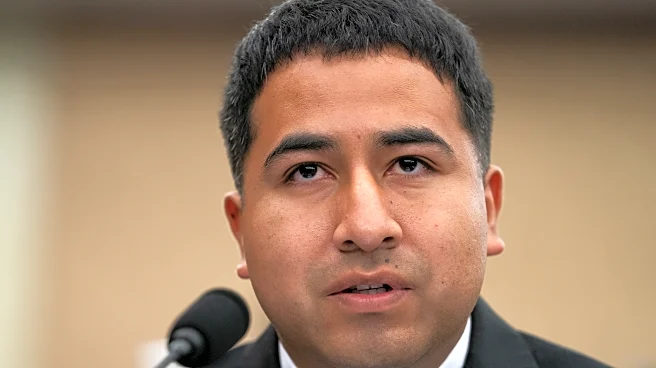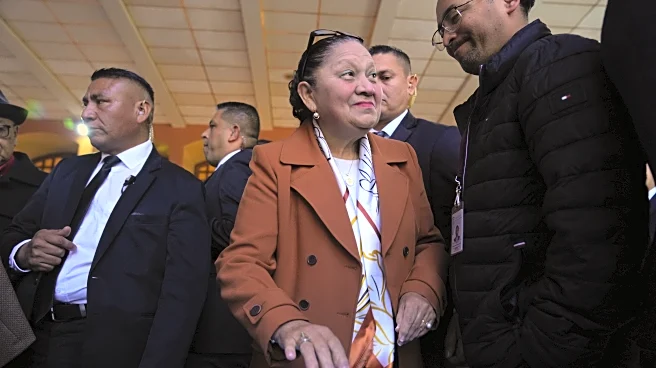What's Happening?
Uzbekistan is undertaking a significant cultural transformation, aiming to position itself as a new hub in the global art world. The country has launched several state-backed initiatives, including the Centre for Contemporary Arts in Tashkent and the Bukhara Biennial, to elevate its cultural heritage and invest in contemporary art infrastructure. These efforts are spearheaded by the Uzbekistan Art and Culture Development Foundation, led by Gayane Umerova. The initiatives include artist residencies, contemporary art museum plans, and programs focused on youth engagement and traditional crafts. The Bukhara Biennial, curated by Diana Campbell, integrates local craft traditions with international art, aiming to attract repeat visitors and deepen understanding of Uzbek cultural heritage.
Why It's Important?
Uzbekistan's cultural initiatives are significant as they represent a strategic effort to integrate the arts into everyday life and attract international attention. By investing in both contemporary and traditional arts, Uzbekistan is fostering a unique cultural identity that could enhance its tourism industry and economic growth. The emphasis on youth engagement and professional development in the arts sector is crucial for nurturing future generations of artists and cultural leaders. This cultural overhaul could redefine Uzbekistan's position in the global art scene, offering new opportunities for collaboration and cultural exchange.
What's Next?
The Centre for Contemporary Arts is set to open in March 2026, with its inaugural exhibition 'Hikmah.' The Bukhara Biennial continues to attract international artists and visitors, potentially increasing Uzbekistan's visibility on the global stage. The ongoing development of cultural programs and infrastructure suggests a long-term commitment to embedding the arts into Uzbek society. Future initiatives may focus on expanding international collaborations and further integrating traditional crafts with contemporary art practices.
Beyond the Headlines
Uzbekistan's approach challenges traditional distinctions between art and craft, presenting them on equal footing. This could influence global perceptions of cultural heritage and contemporary art, encouraging other countries to adopt similar models. The integration of local artisans with international artists fosters a unique cultural dialogue, potentially leading to innovative art forms and practices. Uzbekistan's cultural strategy may serve as a blueprint for other nations seeking to enhance their cultural presence and economic development through the arts.










![Cortisol vs. Melatonin: The Biological War Happening Inside Every Night-Shift Worker]](https://glance-mob.glance-cdn.com/public/cardpress/binge-magazine-card-generation/spaces/US/en/discover-daily/images/ppid_7byehtbd-image-177082393426031154.webp)